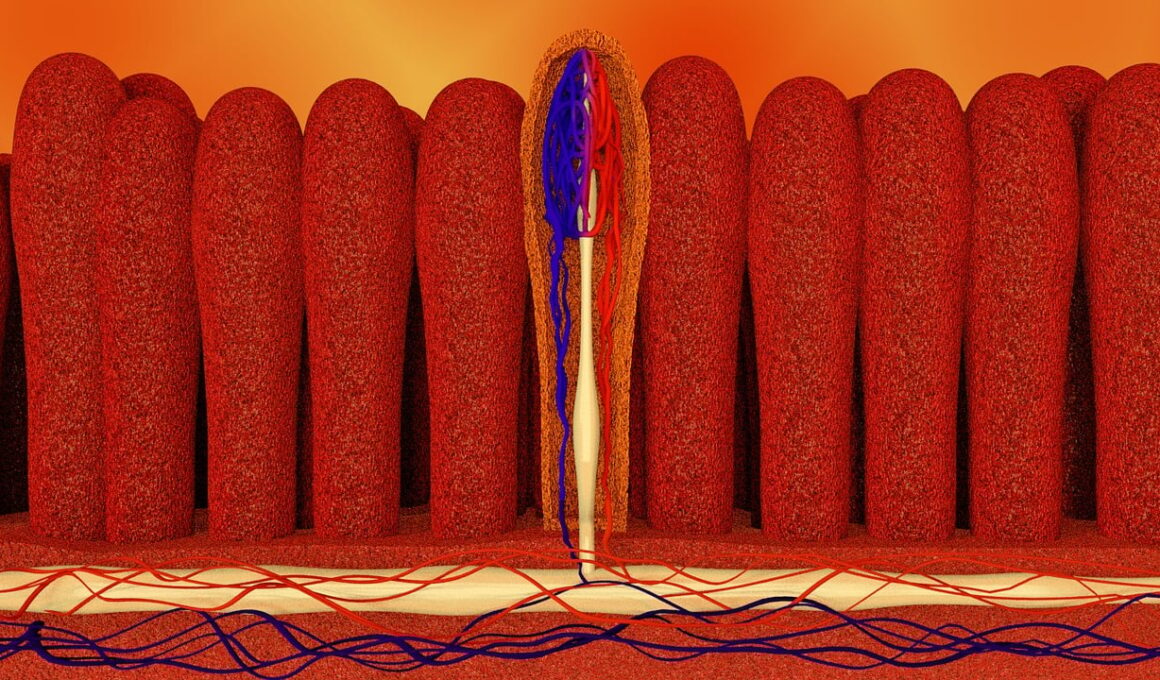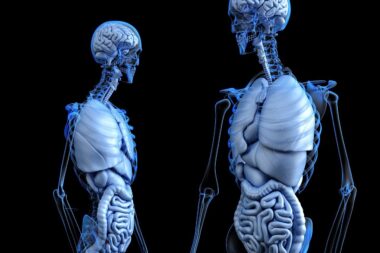How Leaky Gut Syndrome Disrupts Hormonal Health
Leaky Gut Syndrome is a condition that can significantly impact hormone balance and overall health. This syndrome occurs when the intestinal barrier weakens, allowing toxins and undigested food particles to enter the bloodstream. One of the major consequences of this condition is its effect on hormonal health. Hormones are regulated by the endocrine system, which is highly sensitive to inflammation and imbalances in the gut. When leaky gut triggers inflammation, it disrupts hormone signaling, leading to various health issues. Symptoms may include fatigue, digestive discomfort, and hormonal imbalances such as thyroid dysfunction or irregular menstrual cycles. Understanding how gut health relates to hormonal balance can help in managing and preventing these issues. To tackle leaky gut, it is crucial to adopt an anti-inflammatory diet rich in nutrients. Focus on foods that promote gut healing, such as bone broth, fermented foods, and fiber-rich fruits and vegetables. Additionally, reducing processed foods and sugars can alleviate symptoms, allowing the body to restore hormonal health effectively. Therefore, taking steps to healing the gut should be a priority for achieving optimal hormonal health.
The Connection Between Gut Health and Hormones
The gut microbiome plays a crucial role in maintaining hormonal balance in our bodies. A healthy gut is populated with beneficial bacteria that support digestion and nutrient absorption. These microbes also produce short-chain fatty acids, which can influence hormone production in the body. Leaky gut syndrome disrupts the balance of beneficial bacteria, leading to dysbiosis, which can further exacerbate hormonal imbalances. For example, dysbiosis can result in elevated cortisol, the body’s primary stress hormone, which may lead to weight gain, mood swings, and anxiety. Estrogen is another hormone affected by gut health. The liver metabolizes estrogen, and a healthy gut helps in this detoxification process. An imbalance in gut bacteria can lead to estrogen dominance or deficiency, which is linked to various health conditions, including endometriosis and polycystic ovary syndrome (PCOS). Moreover, the gut’s ability to produce neurotransmitters like serotonin is also affected. This neurotransmitter regulates mood and well-being, indicating that a healthy gut is essential for both hormonal and mental health. Thus, keeping gut flora in check is fundamental for maintaining a balanced hormone system.
There are several factors that contribute to leaky gut syndrome, including stress, poor diet, and certain medications. Chronic stress leads to elevated cortisol levels, which can damage the gut lining. A diet high in sugar, refined carbs, and processed foods can further perpetuate inflammation in the gut. Additionally, overuse of non-steroidal anti-inflammatory drugs (NSAIDs) has been linked to gut permeability issues. When the gut becomes permeable, it can trigger autoimmune reactions, causing the immune system to attack healthy tissues, including hormone-producing glands. This condition may lead to conditions like Hashimoto’s thyroiditis, which can severely affect thyroid function. Furthermore, imbalances in insulin levels can also stem from a compromised gut. Insulin resistance is another consequence of chronic inflammation and gut dysbiosis, increasing the risk of developing type 2 diabetes and other metabolic disorders. Addressing the root causes of leaky gut through lifestyle changes can be a game-changer for those struggling with hormone-related issues. Incorporating stress-reducing techniques, such as mindfulness and yoga, as well as dietary adjustments, can create an environment conducive to gut repair and hormonal balance.
Symptoms of Leaky Gut and Hormonal Imbalances
Identifying leaky gut syndrome and its symptoms is crucial for early intervention and treatment. Common symptoms include bloating, gas, abdominal pain, and irregular bowel movements. However, many individuals may experience symptoms not directly related to the gut, such as fatigue, brain fog, and mood fluctuations. These symptoms often stem from hormonal imbalances caused by gut dysfunction. When hormones are out of balance, they can contribute to weight management issues, leading to unexplained weight gain or loss. This cascade of symptoms can create a frustrating experience for individuals who may not realize the underlying connection between their gut health and hormonal disruptions. Moreover, skin issues like eczema or acne can also arise, often linked to imbalances in hormones and inflammation stemming from leaky gut. When considering treatment options, it is critical to approach healing holistically by addressing both gut health and hormonal balance simultaneously. This may involve dietary changes, supplementation, and stress management strategies that target both gut and hormone health. Focusing on restoring balance can greatly improve overall wellness and quality of life for those affected.
To effectively address leaky gut and restore hormonal health, a multi-faceted approach is often necessary. A well-balanced diet rich in whole, nutrient-dense foods is essential. Incorporating anti-inflammatory foods, such as leafy greens, fatty fish, and nuts, can help repair the gut lining. Probiotics are another important aspect, as they help restore healthy gut bacteria. Fermented foods, such as yogurt, kefir, and sauerkraut, are excellent sources of beneficial probiotics. Glutamine, an amino acid, can also be beneficial in healing the gut lining. It provides nourishment to the intestinal cells and helps in repairing gut permeability. Additionally, managing stress through mindfulness practices, exercise, and proper sleep hygiene is equally important. Chronic stress can exacerbate leaky gut, making it vital to address this component for overall well-being. Implementing stress reduction techniques can alleviate symptoms of anxiety or depression that often accompany hormonal imbalances. Regular medical checkups and hormone level evaluations can provide insights into one’s specific needs and guide dietary and lifestyle changes. The goal is to achieve a harmonious balance within the body, emphasizing gut health to promote optimal hormonal function.
Strategies for Healing Leaky Gut
Several strategies can help in the healing process for leaky gut and its associated hormonal imbalances. One effective approach is to follow an elimination diet to identify and remove potential food triggers. Common allergens such as gluten, dairy, and soy can contribute to gut inflammation and worsen symptoms. Reintroducing foods gradually can help pinpoint which items may be problematic. Staying hydrated is also crucial; drinking adequate water supports digestion and helps flush out toxins that could potentially disrupt hormonal balance. Another critical strategy is to incorporate dietary supplements known to promote gut health. These may include probiotics, prebiotics, and digestive enzymes, which help improve gut flora and nutrient absorption. Some individuals may also benefit from herbal remedies, such as turmeric and ginger, which possess anti-inflammatory properties. Moreover, maintaining a balanced lifestyle through regular physical activity can encourage gut motility and decrease stress levels. Establishing a routine that combines healthy eating, exercise, and stress management can significantly impact gut healing. As your gut health improves, hormone balance may follow suit, leading to an overall enhancement in health and vitality.
In summary, leaky gut syndrome can significantly disrupt hormonal health and should be addressed with a comprehensive treatment plan. By fostering a supportive gut environment, one can potentially alleviate hormonal imbalances and their associated symptoms. Recognizing the connection between gut health and hormonal balance is essential for crafting an effective healing strategy. Individuals experiencing hormonal disruptions should consider evaluating their gut health and make necessary lifestyle modifications. Implementing dietary changes, such as embracing more whole foods and reducing processed foods, can be incredibly beneficial. Moreover, prioritizing gut healing aids in hormone regulation while enhancing overall well-being. Utilizing supplements thoughtfully, when needed, can support this journey. Furthermore, incorporating stress reduction techniques like yoga and meditation promotes a sense of calm, which is vital for hormonal balance. Seeking healthcare professionals specialized in gut health and hormone therapy can provide personalized guidance. Monitoring hormonal levels through regular checkups can help assess progress and refine treatment strategies. As awareness of the gut-hormone connection continues to grow, individuals can work towards achieving a healthy balance, optimizing their wellness and quality of life.





